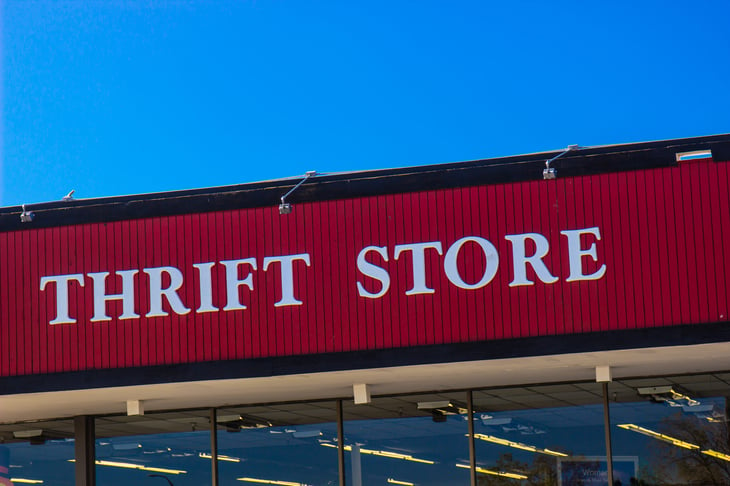
One of the best things about being a professional thrift shopper and reseller is exploring different parts of the country and seeing what national and local chains do best.
After 30 years of road-tripping and online flipping, I’ve developed a list of secondhand shopping hot-spots that can guide your own treasure hunt.
Here are the best thrift store chains.
1. Habitat for Humanity ReStore
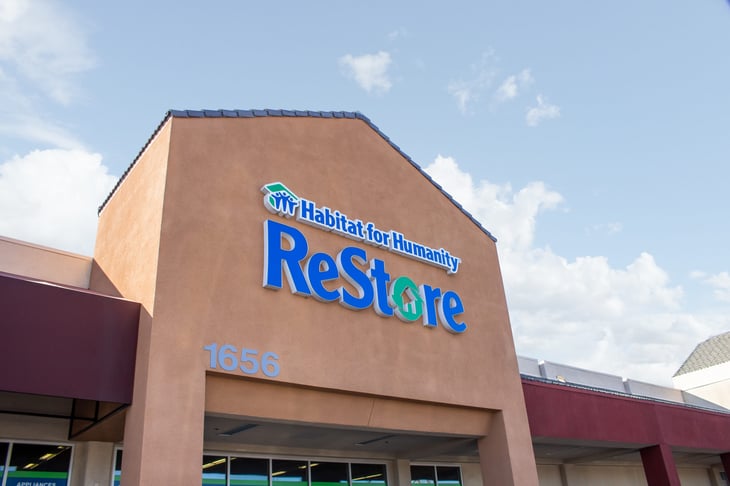
Owned by local Habitat for Humanity organizations, Habitat ReStores resell building materials and household goods. Revenue helps fund home-building and renovation projects for low-income families.
I used to avoid ReStores because I assumed the inventory was limited to raw construction materials and used appliances. How wrong I was! Stores are treasure troves filled with architectural salvage, area rugs, vintage furniture and artwork.
2. SCRAP
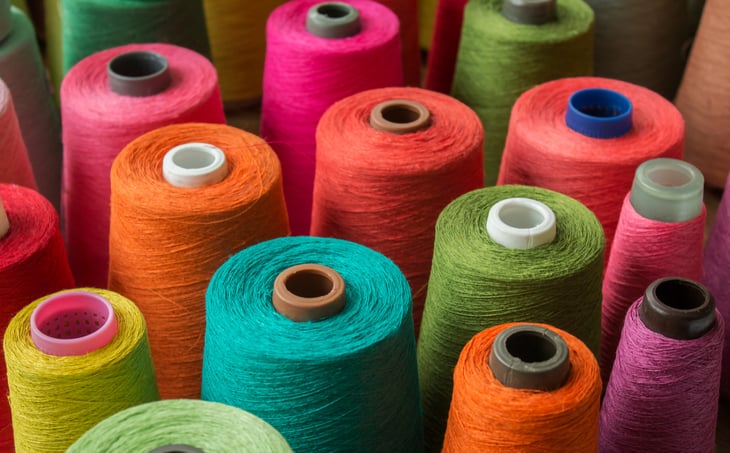
SCRAP Creative Reuse was the brainchild of a group of public school teachers in Portland, Oregon. In 1999, the team opened a creative reuse space focused on repurposing all sorts of craft material (think yarn, wood scraps, tile, bottlecaps, paper, etc.).
Today, SCRAP centers (essentially thrift shops with studio spaces and classes) can be found in Portland; Ann Arbor, Michigan; Baltimore, Maryland; and Richmond, Virginia. Especially wonderful for kids, SCRAP is like a funhouse for creative minds — endlessly inspiring and chock full of fascinating finds.
3. Disabled American Veterans
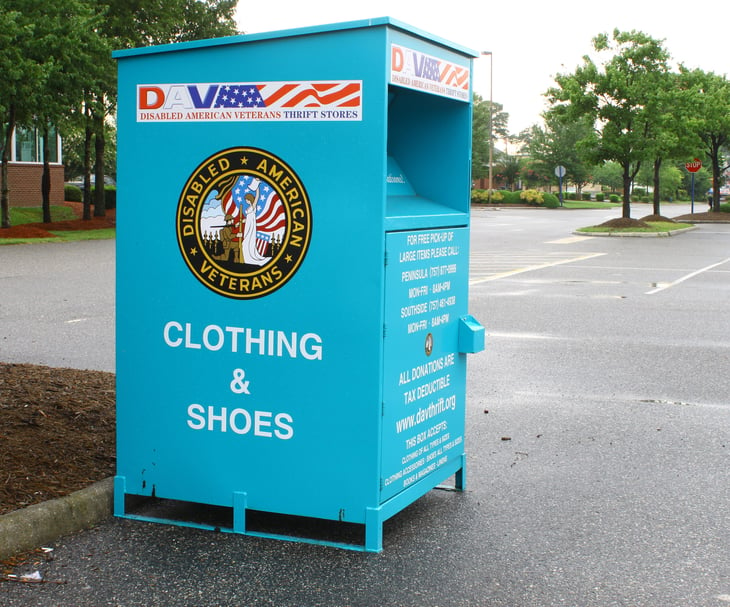
The DAV helps veterans transition to civilian life, access benefits and secure housing. Though it operates thrift stores across the nation, the organization offers little information on the total number and locations.
That’s too bad because DAV stores deserve a big PR boost. The store nearest to me (Des Moines, Iowa) has been around for more than 40 years. Prices are significantly lower than the competition, and throughout the pandemic, DAV discounted every piece of merchandise by 50%.
Google “DAV thrift stores near me” and if there’s one handy, make it a regular stop on your circuit.
4. Goodwill
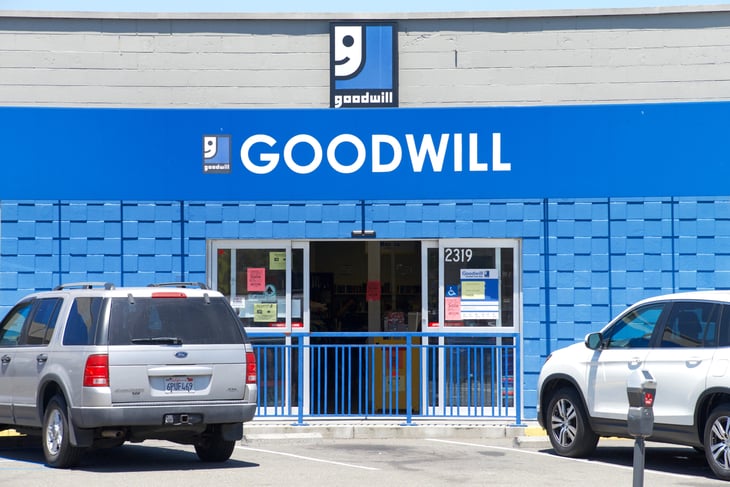
Goodwill helped redefine the American thrift store chain. The organization transformed dark, musty stores into gleaming retail spaces fully integrated into mainstream shopping hubs.
With 3,300 stores across the U.S. and Canada, the sheer size of Goodwill’s footprint makes it a mecca for secondhand shoppers. It’s easy to locate nearby stores, or shop online. Heck, you can even buy bargains by the pound at “the bins.”
Thrift store revenue helps fund Goodwill’s extensive job training, career counseling and resume-building services.
5. St. Vincent de Paul
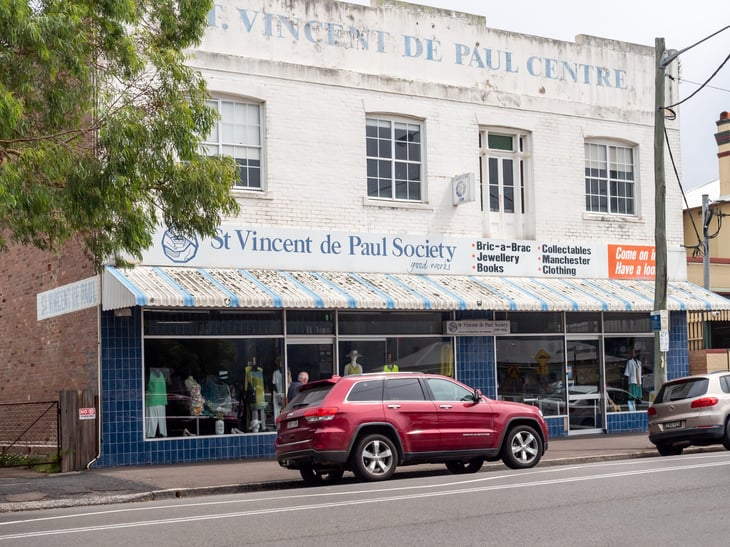
From assistance with rent to food and friendship, the Society of St. Vincent de Paul offers a variety of services to help the poor around the world.
Affectionately nicknamed “St. Vinny’s” by shoppers, stores have a healthy inventory of constantly changing items. Prices can be on the high side, but the potential of finding a real treasure is also high.
Oddly, there’s no nationwide list of St. Vincent de Paul store locations. Do a quick web search to see if there’s a St. Vinny’s near you.
6. The Brown Elephant

One of the Chicago metro’s best kept secrets, the Brown Elephant operates three thrift stores in the Windy City. Proceeds support Howard Brown Health, an LGBTQ health care and social justice organization.
Brown Elephant stores offer an eclectic selection of goods — designer clothes and jewelry, unique housewares and stacks upon stacks of books. Think of it as the World Market of secondhand stores or, better yet, the estate sale of an eccentric, well-traveled uncle.
7. Housing Works
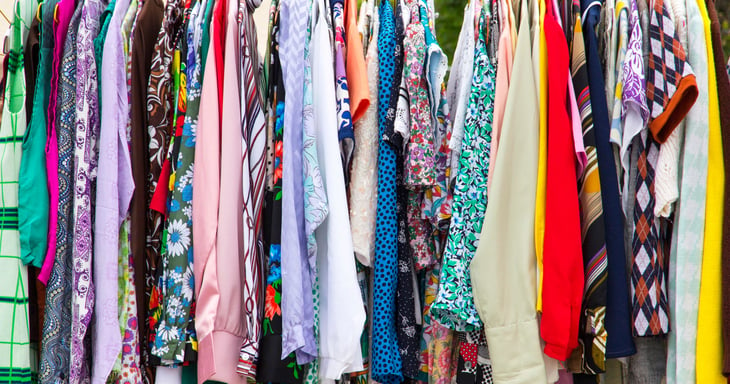
Based in New York City, Housing Works is a nonprofit organization dedicated to fighting AIDS and homelessness. Housing Works operates a successful online shop and 11 thrift stores and used bookshops throughout NYC and Brooklyn.
Housing Work’s vibe and merchandise selection is similar to the Brown Elephant. Expect to find odd, upscale and one-of-a-kind pieces.
8. The Salvation Army
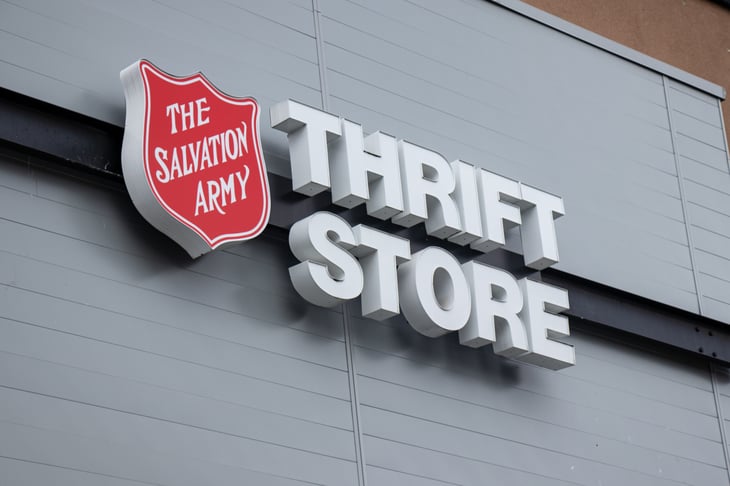
What thrift shopper hasn’t been to “Aunt Sally’s”? Practically synonymous with secondhand shopping, the Salvation Army is an evangelical organization that funds a variety of social service programs for veterans, young people and the elderly.
In my experience, Salvation Army stores tend to have a lower threshold for acceptable and re-sellable items. That means shoppers have to dig a bit more to find the good stuff.
And recently, prices seem to be climbing, while inventory is falling. Still, S.A. stores are a reliable part of the thrift shopping landscape and usually good for a bargain or two.
9. Savers
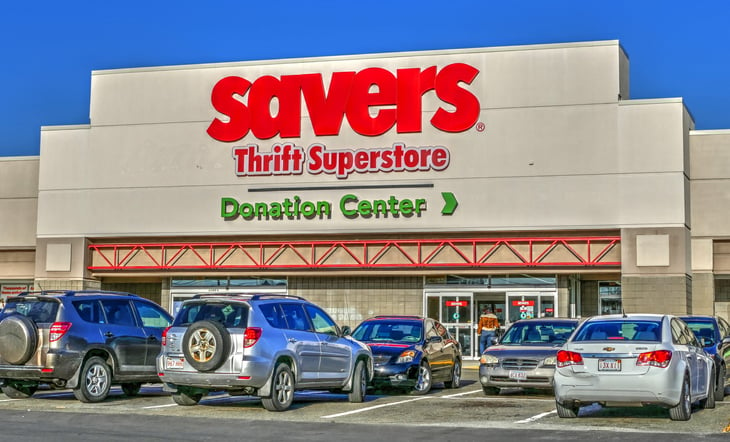
Unlike the other organizations on this list, Savers is a for-profit, privately-owned resale chain. The company operates stores in the U.S., Canada and Australia under the following names:
- Savers
- Value Village
- Unique
I’ve visited stores across the chain and have found them to be well-stocked and organized. The downside: Clothing is priced higher than most competitors, and small items, (kitchen utensils, jewelry, figurines, etc.) are often grouped together in sealed bags, which forces shoppers to buy in bulk.
10. Deseret Industries
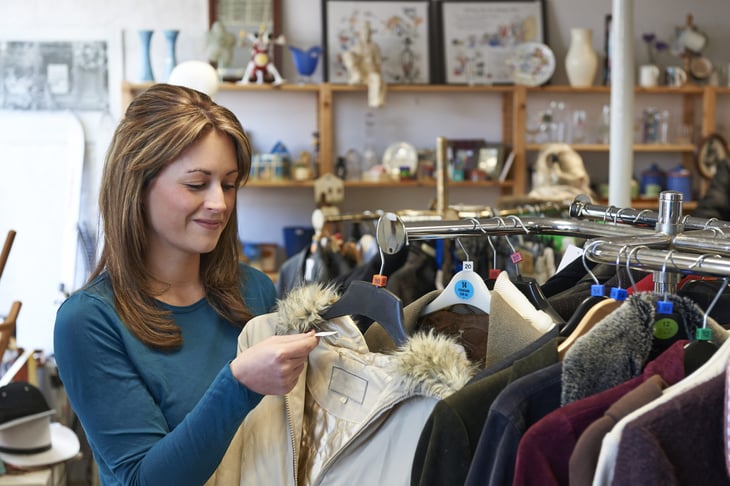
Affiliated with the Church of Jesus Christ of Latter-day Saints, Deseret Industries operates dozens of thrift stores in the Western U.S. (with 15 locations in Salt Lake City alone). The few stores I’ve visited are clean and well-organized.
Unfortunately, prices at D.I. are steep. If you’re shopping for items to flip for a profit, this particular chain may not be the best fit.
